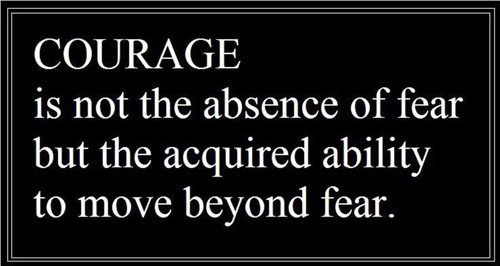Success Advice
The Most Important Trait Every Entrepreneur Needs To Achieve Their Goals & Dreams
I recently finished another book by the infamous Dan Kennedy. For those of you who have not heard of Dan Kennedy, he’s one of the top business and marketing coaches in the world, and if you’re somewhat interested in entrepreneurship, I highly suggest you pick up one of his books (He has written over 30, search Amazon and I’m sure you’ll find a variety).
The book I finished recently was his latest masterpiece, entitled “Wealth Attraction in the New Economy”, and really opened my eyes up to what it takes to be successful and financially independent. The question this books answers in detail is:
What kind of people does wealth gravitate towards?
What types of beliefs and characteristics must you have in order to always be surrounded by wealth?
The book outlines what type of person attracts wealth by listing off 27 “wealth magnets” and detailing why they are essential characteristics to develop.
I’m going to share with you my favorite wealth magnet in detail and what just might be the thing holding you back from success. The most important trait that all entrepreneurs must learn to develop in order to achieve their goals is (drumroll please….)…Courage.
Wealth Rarely Rewards Wimps…You Must Act With Courage
Look around at all the successful millionaire entrepreneurs and professionals out there. I guarantee you will not find a single wimp. They all are strong and are not afraid to go after what they want. They do not let their insecurities and fears stop them from achieving their goals. And that, my friend, is what has allowed wealth to consistently stick to them like a magnet throughout their life.
Listen, you will never achieve any of your goals or accomplish anything worth talking about if you don’t act with a little courage. A little boldness. Have brass balls, as Dan Kennedy likes to say. The majority of the people today are too scared to go after what they truly want. They fear all the dangers and possible mishaps of taking a risk in their lives, so they sit back and play it safe. This is no way to live, and playing it safe is just another word for being a wimp.
Do you think the Steve Jobs and Mark Zuckerberg’s of the world got to where they are by sitting back and letting other people decide their fate for them? Absolutely not! They took bold action, took tremendous risks, and put it all on the line. What they did takes courage. The courage to leave the security of college or a well paying job to go out and start your own business. Yes, it’s easy to look at how things worked out for those two and think, “well they just got lucky”. But the fact of the matter is, most people are too scared to give themselves the opportunity to “get lucky”. They don’t have the courage to take a risk and take some bold action.

The same goes for a lot of other professions as well. This wealth attraction principle can apply to professional athletes, actors, aspiring comedians, and even musicians (especially musicians!). Most musicians have to spend years working their way up to the top, and if they get there, chances are they will not remain famous for long. Only a select few of special musicians and bands remain in the spotlight long enough to say they achieved the dream. It takes courage to put in all that effort, and persist until you get to your end goal. Most people don’t have what it takes. Early on, they decide that it will be too hard, and break up the band while they are young to go get a corporate job, because that’s where the security is. It’s also where the wimps and the average folks of the world hang out.
I’m not saying if you don’t try to start a band and give up 10 years of your life dedicated to it then you are a bad person. But, on the contrary, if you have a have a dream and you don’t go after it, you are only cheating yourself, and all the people whose lives you could possibly make a positive impact on. You are settling for a life that is not what you truly desired, and that is a shame that I hate to see happen. I don’t know you personally, but I hate to see you settling for a life in a cubicle when you’ve always dreamed of being on stage, or on the baseball field, or at the head of a company.
Yes, going after these dreams are not easy and they will take work. But the first step to achieving the dream is working up the courage to cash in all your chips and put it all on the line to accomplish it. You must set a goal and do whatever it takes to achieve it. Most people do not have what it takes. They are too scared and think they cannot do it. Chances are, they can, but they never will because they will never allow themselves the opportunity to try. This is actually better for you, because it means less competition for you and a clearer path to success! Take advantage of the fact that this world is full of wimps. Go out and create something special, and live your dream!
Make a bold decision, and act with courage!
Did You Know
This Move Can Help You Keep More of Your Income
What if keeping more of your income wasn’t about earning more, but choosing a smarter place to live?

Living more cheaply often makes the biggest difference when money is tight. If rent feels too heavy or bills climb faster than expected, changing where you live might help a lot. (more…)
Business
How to Build a Brand That Actually Connects (For Businesses of Any Size)
Brand growth in 2026 isn’t about shouting louder; it’s about clarity, consistency, and human connection that customers genuinely trust.

In the middle of a busy workday, it’s easy to view brand building as a luxury. Honestly, we often treat it like a coat of paint we apply after the house is built. But as we navigate the landscape of 2026, it’s become clear that branding is actually the foundation. (more…)
Business
High Stakes Leadership Habits That Work in Any Business
When volatility is normal and pressure is constant, energy sector leadership reveals the habits that help entrepreneurs build trust, adapt fast, and execute with long-term focus.

Oil and gas leaders operate in a world where mistakes can prove to be very costly. Here, timelines are tight and risks are as real as can be. As a result of all this, the sector offers useful lessons for entrepreneurs and business owners. (more…)
Shift Your Mindset
SEO Secrets That Separate Struggling Hustlers from Thriving Winners
Zero-click searches and AI Overviews are crushing old tactics – the brands building unshakable SEO authority are pulling ahead fast.

One guy pours endless hours into blog posts, tweaking meta tags, begging for links – traffic flatlines. Another quietly builds something solid, updates once a quarter with fresh proof, gets cited in AI answers… and suddenly leads roll in without him lifting a finger for ads. (more…)
-

 Business4 weeks ago
Business4 weeks agoThe Salary Shift Giving UK Employers An Unexpected Edge
-

 Business3 weeks ago
Business3 weeks agoWhy Entrepreneurs Should Care About AI Automation Testing
-

 Business4 weeks ago
Business4 weeks agoWhy Smart FMCG Entrepreneurs Outsource What They Can’t Automate
-

 Business3 weeks ago
Business3 weeks agoWhat Every Business Owner Should Know Before Investing in API Integration
-

 Did You Know4 weeks ago
Did You Know4 weeks agoThe SEO Traps Even Experienced Marketers Fall Into
-

 Business3 weeks ago
Business3 weeks agoWhy Smart Entrepreneurs Are Quietly Buying Gold and Silver
-

 Business2 weeks ago
Business2 weeks agoHow Smart Brands Use Instagram Data to Outperform Competitors
-

 Business2 weeks ago
Business2 weeks agoThe Paradox of Modern Work: Can Tech Make Us More Human?





























11 Comments